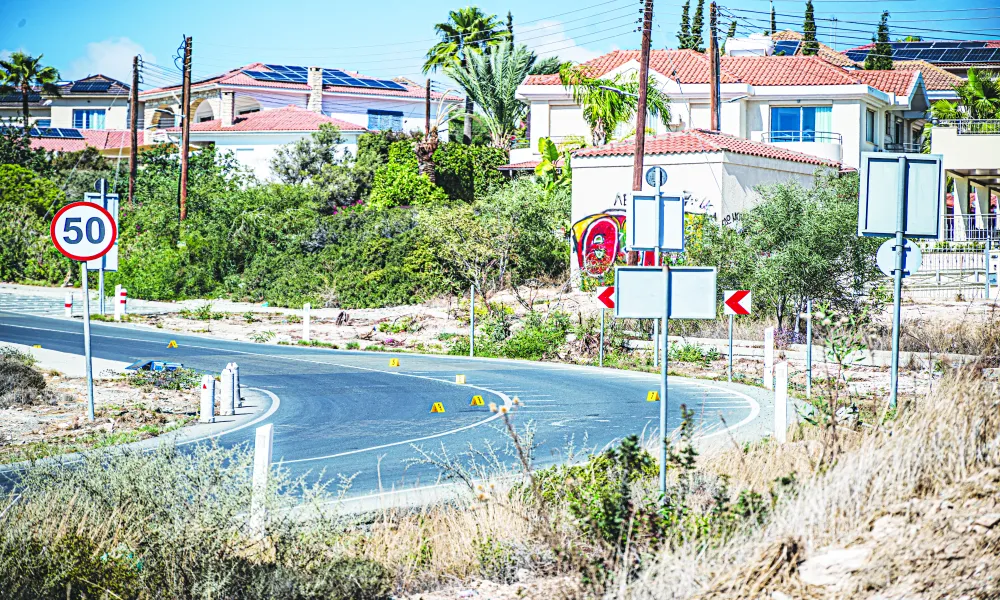Nearly a week after the killing of businessman and former football official Stavros Demosthenous, police appear to have hit a wall. Despite the arrest of five suspects, investigators remain far from identifying the shooters, while DNA analyses have so far yielded no breakthroughs, fuelling growing suspicion that “imported” hitmen were behind the execution-style murder.
Investigations at a standstill
According to police sources, the inquiry has “stalled,” with no substantial new evidence emerging since the initial arrests. Authorities appear to be making sporadic and unfocused moves, such as Thursday’s police raid on a Limassol residence. Officially described as an operation against suspected burglars, it was in fact an attempt to uncover clues related to the murder, but nothing was found. Police later insisted the raid was unrelated to the case, despite the large deployment of officers.
The five suspects remain in custody and continue to deny any involvement, maintaining consistent accounts during interrogation. With no forensic evidence linking them to the crime scene, investigators fear the trail may already have gone cold.
Political clash erupts over organised crime
As the investigation falters, a sharp political confrontation has broken out between Justice Minister Marios Hartsiotis and the left-wing opposition party AKEL. The row began after Hartsiotis’ comments to reporters following Wednesday’s House Legal Affairs Committee meeting, prompting AKEL to issue a statement declaring that the minister “should have been long gone from office.”
Hartsiotis hit back by citing crime statistics from the Christofias administration (2008 - 2013), claiming that out of 67 murders during that period, 12 were linked to organised crime, and asking what AKEL had done to tackle the problem while in power.
AKEL MP Aristos Damianou accused the minister of being unable to handle criticism, saying that “when one holds public office, especially as a minister, one must be able to endure public scrutiny.” Later, in a formal statement, AKEL charged that organised crime had been emboldened, that the police were “running behind it and failing to catch up,” and that the prisons had become “a command centre for the underworld.”
The party added that the minister’s comparisons, such as likening the rise in crime to “the theft at the Louvre”, insulted the public’s intelligence, accusing him of asking citizens to simply accept rising criminality as inevitable.
DISY weighs in
The dispute expanded when DISY MP Nikos Georgiou criticised the minister’s comments as “ill-judged,” particularly during the parliamentary session. Speaking on CyBC radio, Georgiou also highlighted delays in advancing the bill on lawful surveillance, arguing that the police should already have this tool at their disposal.
Hartsiotis responded that the legislation is currently under review by the Legal Service and will be submitted to the Cabinet and then to Parliament. When asked why he reacted more sharply to AKEL’s criticism than to Georgiou’s, he remarked that he had not heard the DISY MP “spread misinformation.”
